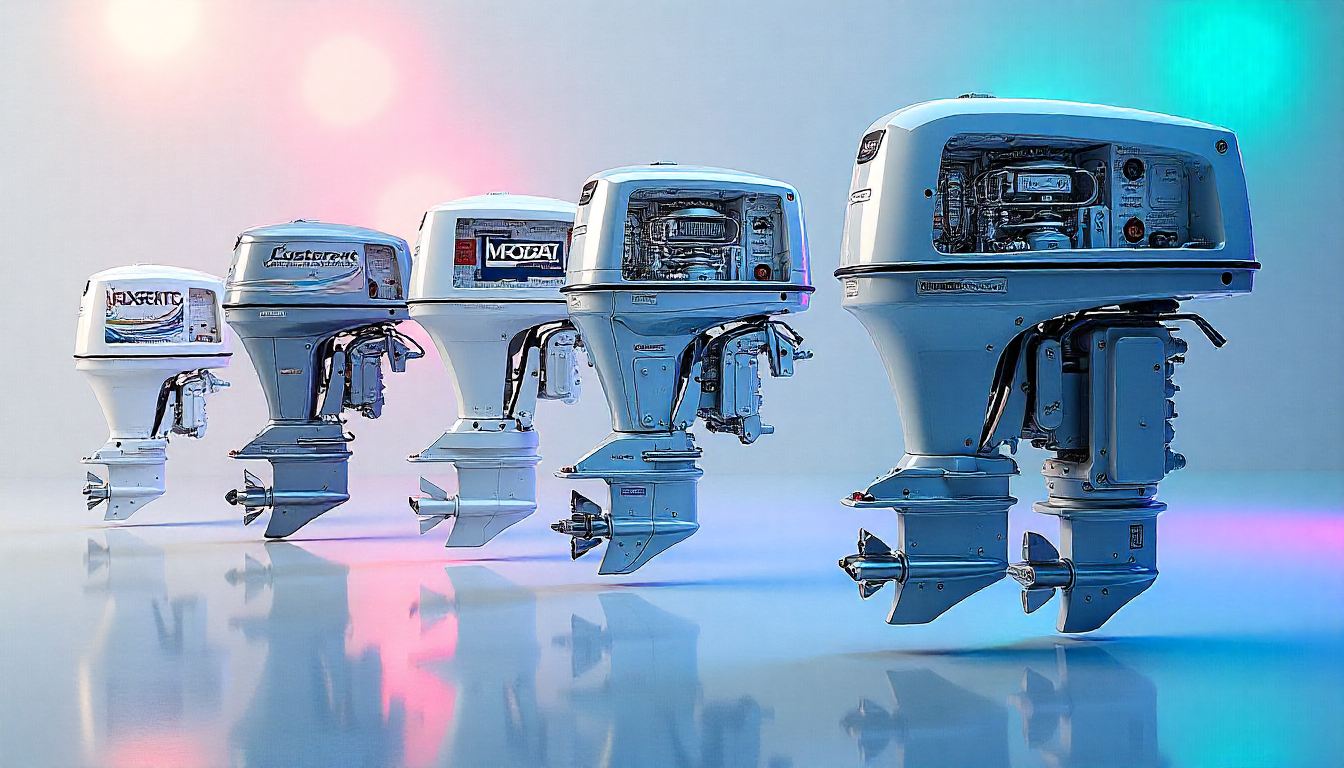Introducere
Selecting the right propulsion system for your boat can shape its performance, efficiency, and reliability. This Guide to Diesel Outboard Motors helps boaters, fishermen, and commercial operators make informed decisions. In recent years, diesel outboard technology has advanced rapidly, offering high efficiency, long range capability, and robust performance under heavy loads. Whether for leisure cruising or demanding marine applications, diesel outboard engines are becoming a compelling alternative to traditional gasoline outboards.
Why Diesel Outboard Motors Are Rising in Demand
A modern diesel outboard engine combines reliability with fuel efficiency, often outperforming gasoline outboards in long range endurance and torque delivery. Operators seeking lower CO2 emissions, less fuel consumption, and compliance with EPA Tier III regulations are gravitating toward diesel solutions.
Marine professionals note that a diesel engine offers the durability to withstand harsh conditions, particularly when carrying heavy loads or operating for extended hours. Compared with a gasoline outboard, the diesel outboard engine provides consistent performance under strain, making it ideal for commercial and government use.
Advantages of Diesel Outboard Engines
High Efficiency and Endurance
A well-designed diesel outboard engine delivers high efficiency, leading to better fuel economy and fewer refueling stops. This is especially valuable for operators covering long distances in demanding conditions.
Improved Fuel Efficiency
With advanced fuel injection system technology and strict EPA Tier III compliance, these engines achieve improved fuel efficiency without compromising performance. The result is lower running costs and a reduced environmental footprint.
Built for Heavy Loads
Diesel marine engines are engineered for strength and reliability, excelling in marine applications where heavy loads and constant use are common. Their torque curve allows vessels to plane quickly and maintain speed in challenging seas.
Diesel Outboard Motors vs. Gasoline Outboards
Gasoline outboards have historically been popular for recreational boating due to their lighter weight and lower purchase cost. However, when factoring in fuel savings, durability, and power for heavy-duty operations, diesel outboard motors often prove to be the better long-term investment.
A gasoline outboard might suffice for short leisure trips, but a diesel outboard engine offers impressive endurance and fuel economy over extended journeys. For professional mariners, the difference in fuel consumption between diesel engines and gasoline outboards can represent substantial cost savings.
Understanding EPA Tier III Regulations
What Is EPA Tier III?
EPA Tier III standards are environmental regulations designed to reduce harmful emissions from marine propulsion systems. These standards ensure diesel outboard engines produce significantly lower NOx emissions and particulate matter.
Why It’s Important
For commercial operators, EPA Tier III compliance protects long-term investment by meeting current and future environmental standards. This is especially vital for marine applications in regulated waters.
Advances in Fuel Injection System Technology
The latest diesel outboard engine models feature precise fuel injection systems, enabling efficient combustion and lower emissions. These systems adapt to changing loads and speeds, maximizing performance across various marine applications.
By delivering the exact fuel quantity at the right time, modern injection system designs improve fuel economy, enhance throttle response, and contribute to improved fuel efficiency.
Key Considerations When Buying a Diesel Outboard Motor
Performance Requirements
Identify whether your engine will power heavy-duty commercial vessels, long range cruisers, or recreational craft.
Weight and Compatibility
Diesel outboard motors are generally heavier, so ensure your vessel’s transom can handle the load without compromising safety or performance.
Fuel Economy Analysis
Assess annual fuel consumption and compare it with potential fuel savings when switching from gasoline to diesel.
Service and Support
Choose manufacturers with strong service networks, particularly important for those operating in remote marine regions.
Leading Brands in Diesel Outboard Engines
Several manufacturers are innovating in this sector, offering models with high efficiency, EPA Tier III compliance, and rugged designs suited for both recreational and commercial marine applications. Their engine offers reliability, torque, and the ability to meet strict environmental standards.
Diesel Outboard Engines in Professional Marine Applications
Commercial fishing fleets, patrol craft, rescue boats, and long-range cruisers all benefit from the improved fuel efficiency and durability of diesel outboard engines. Heavy loads and high-duty cycles are where these engines excel.
Military operators often choose diesel outboard solutions for their fuel commonality, reliability, and ability to meet environmental regulations without sacrificing performance.
Environmental Advantages
Diesel outboard motors contribute to cleaner waters by producing lower CO2 emissions and consuming less fuel. Compliance with EPA Tier III ensures these engines meet high environmental standards while delivering strong performance. This combination of power, efficiency, and environmental responsibility appeals to both private and commercial sectors.
Real-World Example
A South Pacific island ferry service recently transitioned from gasoline outboards to EPA Tier III compliant diesel outboard engines. In the first operational year, the fleet recorded a 20% improvement in fuel economy, lower fuel consumption per trip, and reduced downtime due to engine reliability—proving the long-term value of diesel technology.
The Future of Diesel Outboard Motors
Innovations in hybrid diesel-electric propulsion, lighter engine designs, and even more advanced fuel injection systems are on the horizon. These improvements aim to combine diesel’s range and torque with the low emissions and quiet operation of electric propulsion for marine applications.
As environmental regulations become stricter, manufacturers will continue refining diesel outboard engine designs to deliver better performance, longer service life, and even greater fuel efficiency.
Concluzie
This Guide to Diesel Outboard Motors shows that the decision to invest in diesel technology should be based on operational needs, range requirements, and long-term value. While gasoline outboards remain a good choice for certain recreational uses, the advantages of diesel—improved fuel efficiency, high efficiency torque, compliance with EPA Tier III, and the ability to handle heavy loads—make them a strong contender for many boaters.
Whether your goal is fuel savings, low emissions, or reliable performance over long distances, today’s diesel outboard engine market offers more options than ever before. Selecting the right model could mean years of dependable service and significant operational benefits for your marine venture.

 Guide to Diesel Outboard Motors – Everything You Need to Know">
Guide to Diesel Outboard Motors – Everything You Need to Know">
